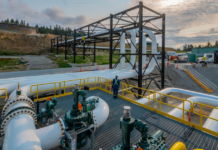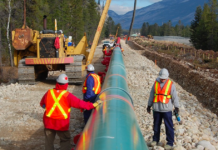Saskatchewan is leading the way in reducing greenhouse gas emissions from crop production, according to a new study by the Global Institute for Food Security (GIFS).
The study, which examined the carbon footprint of canola, wheat, lentils and field peas, found that the province’s farmers have adopted practices that vastly enhance soil carbon sequestration.
Analysts compared the carbon intensity of each crop per tonne of output in Saskatchewan with other major producing regions in Canada and around the world.
The results showed that Saskatchewan’s emissions were significantly lower than the global weighted average for all four crops, and also lower than the Canadian average for three of them.
For example, Saskatchewan’s canola production had 67% lower emissions than the global weighted average, and 32% lower than the Canadian average.
The province also outperformed other countries such as France, Germany, Russia and Ukraine, which had higher emissions due to factors such as higher fertilizer use, lower yields and more tillage.
Data also showed that Saskatchewan’s lentil production had a negative carbon footprint, meaning that the crop sequestered more carbon in the soil than it emitted during its growth. This was attributed to the use of no-till farming, which minimizes soil disturbance and preserves organic matter.
Saskatchewan’s lentil emissions were 130% lower than the global weighted average, and 32% lower than the Canadian average. The province also had a huge advantage over Australia and the U.S., which had much higher emissions due to lower soil carbon levels and higher energy use.
The study’s lead author, Dr. Hideo Okochi, said that the findings demonstrate the environmental benefits of Saskatchewan’s crop production systems.
He said that the province’s farmers have been adopting sustainable practices for decades, and that their efforts have paid off in terms of reducing their carbon footprint.
The study has not yet been published in a peer-reviewed journal, but GIFS plans to make it available to the public soon.
Despite the remarkable work Saskatchewan farmers have done towards lowering carbon emissions, the Liberal government continues to claim that Canada is among the worst offenders when it comes to carbon emissions from agricultural production.






















